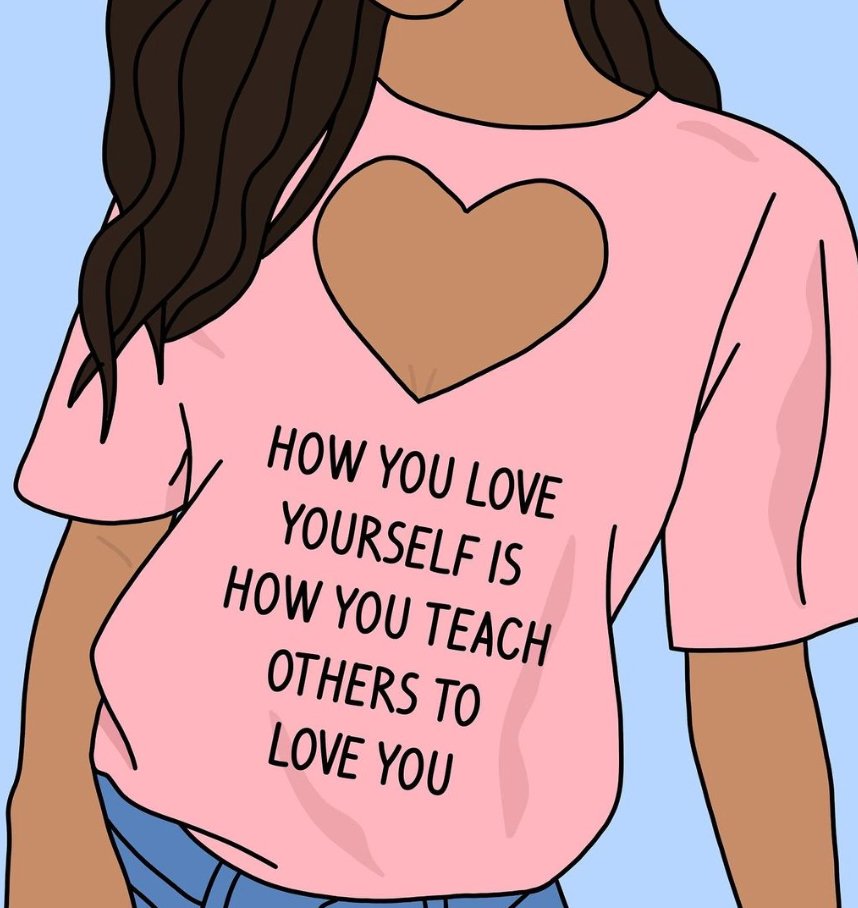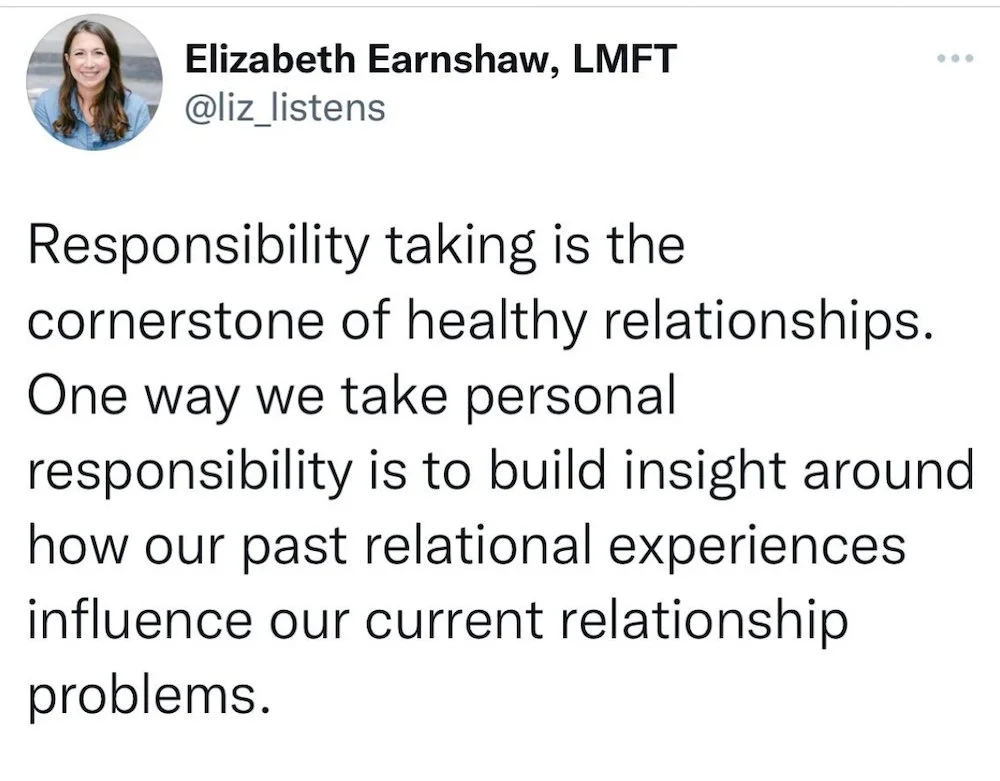6 Kinds Of Instagram-Therapy Advice To Avoid At All Costs
by The Candidly Team
We have a complicated relationship with the internet.
It’s brought to the surface important, necessary conversations, and given a voice to groups that never had one. On the other hand, it’s maybe responsible for the unraveling of society as we know it?
Case in point: social media has absolutely helped inspire conversations about mental health that we just weren’t having 20, or even 10 years ago. On the other hand, not everyone giving mental health advice on the internet is an actual “expert,” and not all advice is…good.
Bad Insta-therapy advice, which usually comes in pastel-meme form, is positively RIFE on social media, and usually looks something like:
And for anyone struggling with our mental health, trying to parse helpful advice from memes that may do more damage isn’t just challenging, it’s actually worse for our brains. So we sought out the professional opinions of actual therapists and mental health experts (who also happen to be internet-savvy), who told us that we should absolutely avoid THESE 6 common, terrible Insta-therapy ideas:
1. “Reading internet advice = going to real life therapy.”
“I get super frustrated by the sheer volume of people who think advice giving is psychotherapy. Effective psychotherapy is really not about advice giving, it is the use of culturally grounded therapeutic principles designed to help people reach their own conclusions and hopefully engage in (positive) behavior change.
Psychotherapy has a few components, with one of the most important being the human connection and the therapeutic relationship. We are not truly able to have a therapeutic relationship by reading and scrolling, that comes from being face to face or voice to voice, from real-time interactions.”
–Dr. Alfiee Breland-Noble, Psychologist
2. “Our problems can be fixed with the right attitude.”
“One of the most pervasive themes I see is the idea that positive thinking will fix everything and make you happy. This advice is rooted in outdated beliefs on emotions and positive thinking. It also seemingly gives people control over their lives, but instead just ends up resulting in more shame, emotional suppression, and isolation.”
—Whitney Goodman, Psychotherapist
3. “TikTok videos are good tools for mental health diagnosis.”
“One big concern I have about social media therapy is that it is causing people to feel like they have mental health disorders that they may not have. Especially on TikTok.
Social media is extremely different from the nuances of real-life therapy. Insta-therapy is about that therapist’s beliefs and ideas, real therapy is about you, and the therapist will tailor the session to what you need to hear.
There are many things I share on Instagram that I would never discuss or bring up to a client because it isn’t relevant or helpful for them. That is why therapy is so much more effective and better than insta-therapy. It’s personal. As a therapist, I know when to push someone, when to back off, when to bring up certain ideas and I respond in the moment based on how they take my feedback. Real therapy is collaborative. Insta-therapy is like scrolling on WebMD.”
—Amanda White, Therapist
4. “Your relationship problems are always the other person’s fault, or always your fault.”
“I worry that a lot of the ‘hot takes’ on social media tend to focus on either end of the extreme—either deflecting any responsibility for the relationship onto the other person by pathologizing them, or by discounting any responsibility for ourselves by being hyper focused on the other person.
This might look like labeling everyone a narcissist, or dismissing the importance of compromise, or mislabeling ultimatums as boundaries. It might also look like encouraging people when they are dating to play hard to get. Or, on the other hand, it might look like telling people to be fully self-sacrificing in order to please their mate, even if it leads to unhappiness within themselves. Instead, we want to work towards building balance in our relationships with others—remembering that we need to be able to take care of ourselves while still also caring for others.”
—Elizabeth Earnshaw, Licensed Marriage and Family Therapist & Certified Gottman Therapist
Image from Instagram/ @lizlistens
5. “Trauma only comes from significant, obvious events.”
“A very frustrating aspect of mental health content online is the lack of trauma-informed practitioners who speak about trauma. When people think about trauma, they often think about significant events like natural disaster, sexual assault, serious accidents, chronic illness, death, etc. They also think about Post Traumatic Stress Disorder symptoms, like flashbacks and recurring nightmares.
While this conception is not wrong, mental health advocates need to do a better job of talking about trauma that occurs in more subtle ways. What I mean is that trauma can exist in many forms. Many people experience a lack of emotional safety and validation from their caregivers while growing up. These experiences can be subtle but add up over time and can be significantly traumatic for the people who experience them because it shapes the self-defeating beliefs they have about themselves, other people, and the world.
I think this misconception—or pigeonholing—of our understanding of trauma comes from popular media that tends to sensationalize PTSD and links it to some one-off significant event that occurs in people’s life.”
—Amy Tran, Ph.D Candidate in Clinical Psychology
6. “Our perspectives are always valid, and should never change.”
“There’s not one singular piece of advice that I think is wrong, so much as a category of posts that I think are counterproductive. These kinds of posts are ‘thought-stoppers.’ They instantly validate a particular perspective in a way that’s missing critical nuance, and leave people with thoughts like ‘yup, that’s me’ or ‘yeah, that’s exactly how it is’ without inviting any further thoughts on the subject. This can be dangerous because it can keep people locked in fixed ways of looking at the world and relating to themselves that are ultimately harmful to them and their relationships.
For example, I recently saw a post that read, ‘I’ve learned that not speaking on things just to keep the peace is actually a trauma response. When you do this, you disrespect YOUR boundaries. No matter what, keep taking up space and using your voice.’ This is great advice if we’re interacting with a bully, or someone who is rude, invalidating or disrespectful of our boundaries. This is potentially really bad advice if we’re interacting with someone who deeply cares about us, and we want to have a healthy, reciprocal relationship. Sometimes keeping the peace is a really beautiful thing and very helpful in the moment. Sometimes we need to share the space, talk things out and find middle ground. Sometimes we need to draw a firm line in the sand. In short, this advice is too one-size-fits-all to be helpful in many situations.”
—Iris McAlpin, Certified Trauma Professional & NARM® practitioner
This article is for informational purposes only. It is not intended to be used in place of professional advice, medical treatment, or professional care in any way. This article is not intended to be and should not be a substitute for professional care, advice or treatment. Please consult with your physician or healthcare provider before changing any health regimen. This article is not intended to diagnose, treat, or prevent disease of any kind. Read our Terms & Conditions and Privacy Policy.




